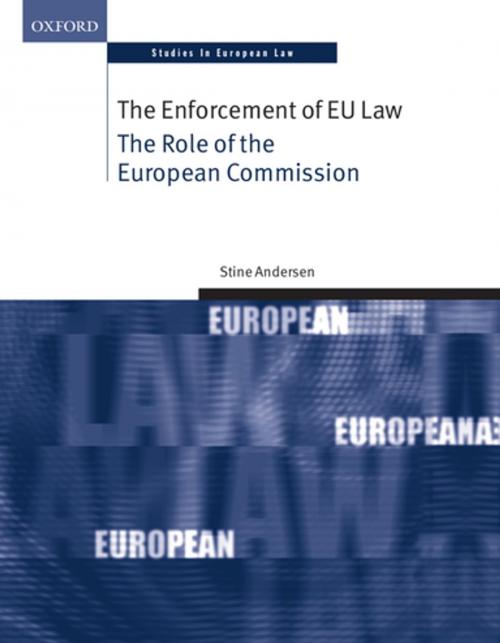The Enforcement of EU Law
The Role of the European Commission
Nonfiction, Reference & Language, Law, Constitutional, Social & Cultural Studies, Political Science| Author: | Stine Andersen | ISBN: | 9780191650055 |
| Publisher: | OUP Oxford | Publication: | November 29, 2012 |
| Imprint: | OUP Oxford | Language: | English |
| Author: | Stine Andersen |
| ISBN: | 9780191650055 |
| Publisher: | OUP Oxford |
| Publication: | November 29, 2012 |
| Imprint: | OUP Oxford |
| Language: | English |
A comprehensive analysis of the European Commission's general role in supervising member state compliance with EU law, this book provides a detailed assessment of centralized EU enforcement. It starts out by asking whether it is viable to establish stronger Commission powers of enforcement at this point in time. Against this backdrop, and as a means of exploring the role of the Commission, the chapters examine a number of different aspects pertaining to enforcement of EU law. Beginning with an appraisal of the Commission's function under the general EU infringement procedure stipulated in Articles 258 and 260 TFEU, the volume argues that the EU lacks independent self-sustained regime authority. Moreover, this is reflected in both substantive EU law and procedural law, including the general EU infringement procedure. Chapter two makes the case that Article 258 TFEU can usefully be explained in terms of managerialism. Chapter three analyses Article 260 TFEU concerning repetitive infringements. In particular, it asserts, EU member state sanctions sustain the managerial approach. It then goes on to examine the Commission's unsuccessful attempts to gain sharper enforcement powers through secondary legislation, and identifies the effective points of functional overlap between enforcement powers and certain types of implementing tools. Finally, it discusses the Commission's role under various non-binding, ad hoc arrangements. The concluding chapter places the general EU infringement procedure in the broader context of a comprehensive (negotiated) policy process. It argues that the enforcement stage shares many features with earlier steps in the legislative process, including flexibility and deliberation.
A comprehensive analysis of the European Commission's general role in supervising member state compliance with EU law, this book provides a detailed assessment of centralized EU enforcement. It starts out by asking whether it is viable to establish stronger Commission powers of enforcement at this point in time. Against this backdrop, and as a means of exploring the role of the Commission, the chapters examine a number of different aspects pertaining to enforcement of EU law. Beginning with an appraisal of the Commission's function under the general EU infringement procedure stipulated in Articles 258 and 260 TFEU, the volume argues that the EU lacks independent self-sustained regime authority. Moreover, this is reflected in both substantive EU law and procedural law, including the general EU infringement procedure. Chapter two makes the case that Article 258 TFEU can usefully be explained in terms of managerialism. Chapter three analyses Article 260 TFEU concerning repetitive infringements. In particular, it asserts, EU member state sanctions sustain the managerial approach. It then goes on to examine the Commission's unsuccessful attempts to gain sharper enforcement powers through secondary legislation, and identifies the effective points of functional overlap between enforcement powers and certain types of implementing tools. Finally, it discusses the Commission's role under various non-binding, ad hoc arrangements. The concluding chapter places the general EU infringement procedure in the broader context of a comprehensive (negotiated) policy process. It argues that the enforcement stage shares many features with earlier steps in the legislative process, including flexibility and deliberation.















